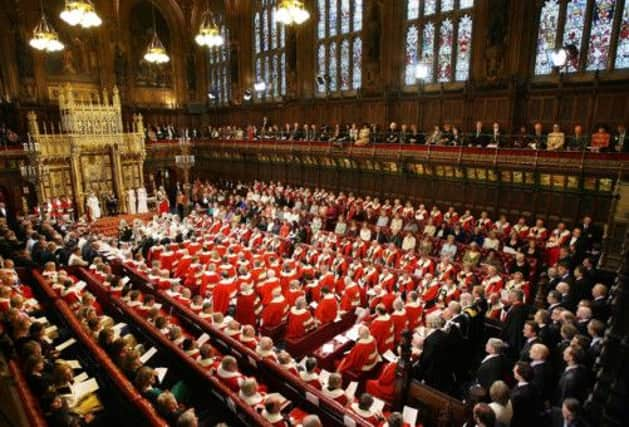Christine Jardine: Overcrowded Lords demands reform


By now I would have hoped to be writing about how the reformed upper chamber of our parliament was going to look.
Perhaps outlining how our elected politicians were replacing the centuries old House of Lords – one of the world’s last unelected chambers – with a 21st Century model.
But no.
Advertisement
Hide AdAdvertisement
Hide AdThat all fell apart last year with the blocking of Liberal Democrat reforms, leaving us with those increasingly overcrowded red benches whose places are still available by special invitation only.
The disappointment that Labour and Conservative seemed to prefer the status quo to democratic progress has not yet subsided.
But this summer’s announcement of the new intake in the Lords does, for me at least, offer some hope that things may yet change.
The 30 “newbies” include a fresh tranche of Liberal Democrats with a clear reform agenda and each of them described, significantly, as “working members”.
They include the businessman and philanthropist Rumi Verjee, who brought Domino’s Pizzas to the UK, former parliamentarians like Jeremy Purvis, the party’s former communications chief Olly Grender and Alison Suttie, who was deputy chief of staff to Nick Clegg, worked in the European Parliament and staffed the coalition talks.
While there is a long tradition of elevating former MPs, the introduction of these “working peers” with a role to play seems to mark a significant development.
Each of them has real life experience and a political commitment to reform the club they have now joined.
They are mostly heavily involved with the Liberal Democrat membership and aware of public opinion.
They are also not alone in their approach.
Advertisement
Hide AdAdvertisement
Hide AdSince the 2010 general election the Liberal Democrats have been appointing peers chosen largely by party members and charged by the Deputy Prime Minister with driving through reforms.
So could it be that the House of Lords is being brought up to date quietly in a way that will make it more receptive to change?
Even perhaps assist in its own demise?
I certainly hope so.
In recent years those of us who find the continuing anachronism of the Lords an offence to democracy have had to put up with several disappointments.
Labour Party commitments in the Blair years and tinkering around the edges with hereditary peers have failed to address the central issue.
Those who have responsibility for creating the laws of the land should be answerable to those who have to abide by them.
I have no doubt there are critics around who will dismiss the notion that reform can be assisted from within and claim that somehow the Lib Dems have accepted defeat on the issue, opted simply to bow to the inevitable and have shelved the idea of a democratically elected upper chamber.
But that is to ignore the impact of last summer’s events and the motivations of the players.
The failure of the Conservatives to back Lords’ Reform was arguably the most significant split in the coalition to date.
Advertisement
Hide AdAdvertisement
Hide AdReform was a manifesto commitment of both parties which was included in the conditions of the coalition agreement.
The price the Tories paid for reneging on the deal was the loss of their much coveted and potentially beneficial boundary changes. It should have come as no surprise.
Reform of the Lords is something Liberal politicians have worked towards for a century.
In the coalition agreement it was one of those goals – along with lower taxes, improved pensions and the Green Investment Banks – which they were not prepared to compromise on.
That the Conservatives thought they would be prepared to let it be lost once in government without extracting a heavy price was a major miscalculation, and one which could prove costly for them in 2015.
In the months since it became clear that there would be no major change in the rules of membership to the House of Lords during the life of the current government the focus has slipped slightly from the issue.
But that does not mean that we should give up on it, or assume that either our elected representatives or those within the Lords have done.
Over the next few months it will become much clearer to everyone just in what way the latest recruits intend to discharge their new found responsibility.
Advertisement
Hide AdAdvertisement
Hide AdIt is unlikely that they will, on their own, be able to change the nature of the Lords or sufficiently alter the balance of opinions to make change inevitable.
But it is an important statement of intent.
Immediately after his decision to withdraw the Lords reform proposals Nick Clegg made it clear that this was an issue to which his party will return.
When the 2015 general election manifesto is complete there are many who expect it to be included once more in their party’s stated aims.
If this issue is, and the Liberal Democrats are once more in coalition – with either of the other parties – it could very well be on the agenda of our next government.
It is then that those new voices will be able to make themselves heard.
And its just possible that we will finally be able to consign the remnants of privilege in government to dustbin of history.